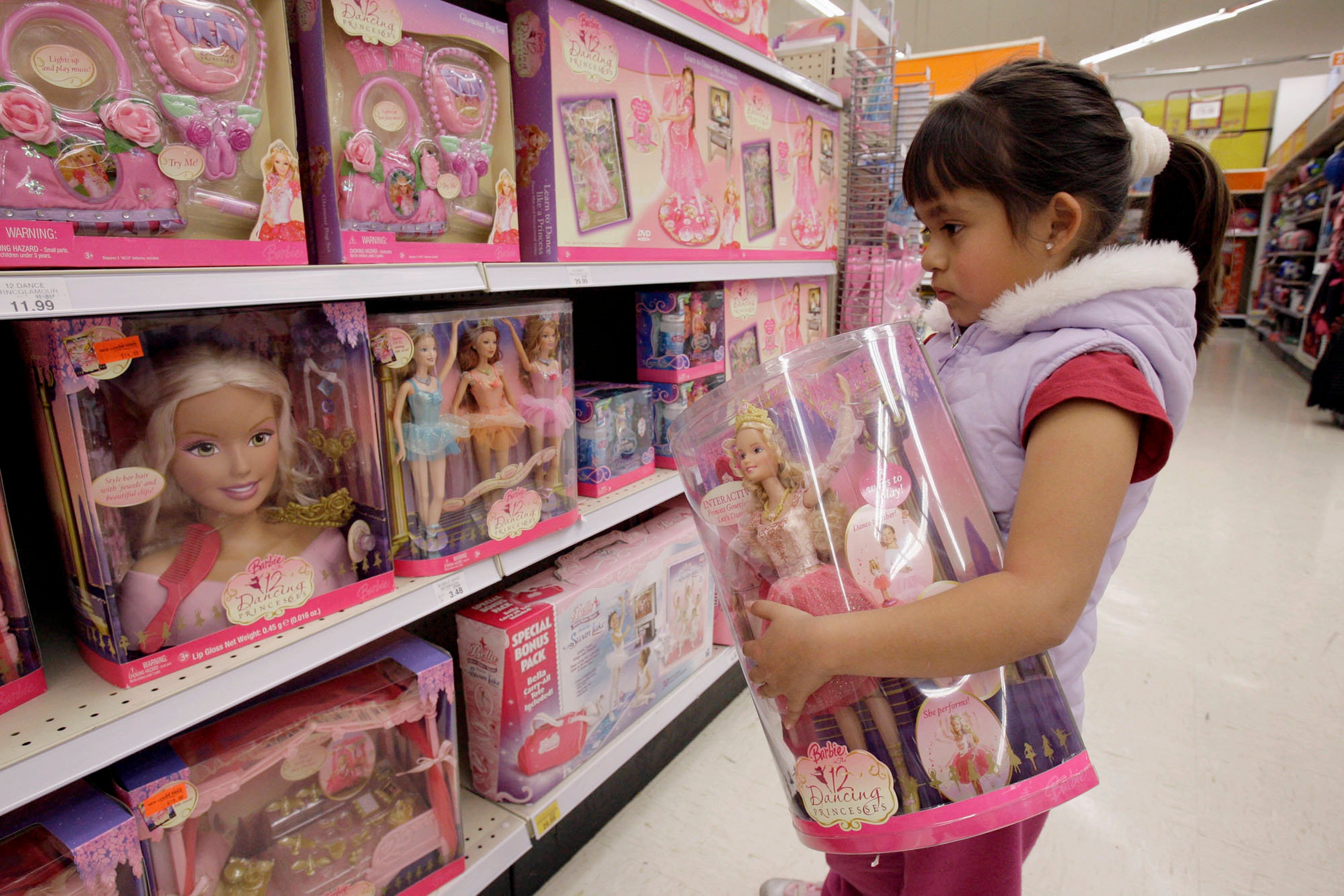California to require all major toy stores to have gender-neutral sections
A bill signed into law by California governor Gavin Newsom will come into effect from 2024

Your support helps us to tell the story
From reproductive rights to climate change to Big Tech, The Independent is on the ground when the story is developing. Whether it's investigating the financials of Elon Musk's pro-Trump PAC or producing our latest documentary, 'The A Word', which shines a light on the American women fighting for reproductive rights, we know how important it is to parse out the facts from the messaging.
At such a critical moment in US history, we need reporters on the ground. Your donation allows us to keep sending journalists to speak to both sides of the story.
The Independent is trusted by Americans across the entire political spectrum. And unlike many other quality news outlets, we choose not to lock Americans out of our reporting and analysis with paywalls. We believe quality journalism should be available to everyone, paid for by those who can afford it.
Your support makes all the difference.California has become the first US state to require large retail stores to have gender-neutral toy sections.
Governor Gavin Newsom signed a bill into law on Saturday, making it mandatory for toy stores with more than 500 employees to have a section of toys and childcare products that are not specified under any gender.
The law, which will come into effect from 2024, has been seen as a big win for LGBT+ advocates, who have said colour-coded pink and blue marketing methods reinforce gender stereotypes.
The legislation will not outlaw traditional girls and boys sections in the stores, but mandates stores to display “a reasonable selection” of items “regardless of whether they have been traditionally marketed for either girls or for boys.”
Mr Newsom did not comment on the law after signing it, but Evan Low, a Democrat state assembly member, who authored the bill, said he was “incredibly grateful”, reported the Los Angeles Times newspaper.
“Part of it is to make sure if you’re a young girl that you can find a police car, fire truck, a periodic table or a dinosaur,” Mr Low was quoted as saying.
“And then similarly, if you’re a boy, if you’re more artistic and want to play with glitter, why not? Why should you feel the stigma of saying, ‘Oh, this should be shamed’ and going to a different location?”
He said it was the daughter of one of his staff members who inspired the bill when she questioned why she had to visit the boys section to find some of the toys of her liking.
“Children have a very unique way of saying things that provide some common sense,” Mr Low said. “I think it’s important that we as a state are demonstrating our values of diversity and inclusion.”
The bill was passed despite opposition and criticism from Republicans and conservatives who said the government should not dictate how private companies ought to display merchandise in their stores.
The Consumer Federation of California, a nonprofit advocacy organisation, backed the law and said traditionally marketed items implied their use by a gender could be perceived as “inappropriate”.
“Keeping similar items that are traditionally marketed either for girls or for boys separated makes it more difficult for the consumer to compare the products and incorrectly implies that their use by one gender is inappropriate,” the organisation was quoted as saying by The Fresno Bee newspaper.
This was the third time Democrats tried to pass the law, after two failed attempts in 2019 and 2020.
Some retail stores, however, had already taken the initiative to part ways with traditional displays long before the bill was signed into law.
Target, which has 1,915 stores across the US, announced in 2015 that it would not use gender-based markings in its stores.
Join our commenting forum
Join thought-provoking conversations, follow other Independent readers and see their replies
Comments